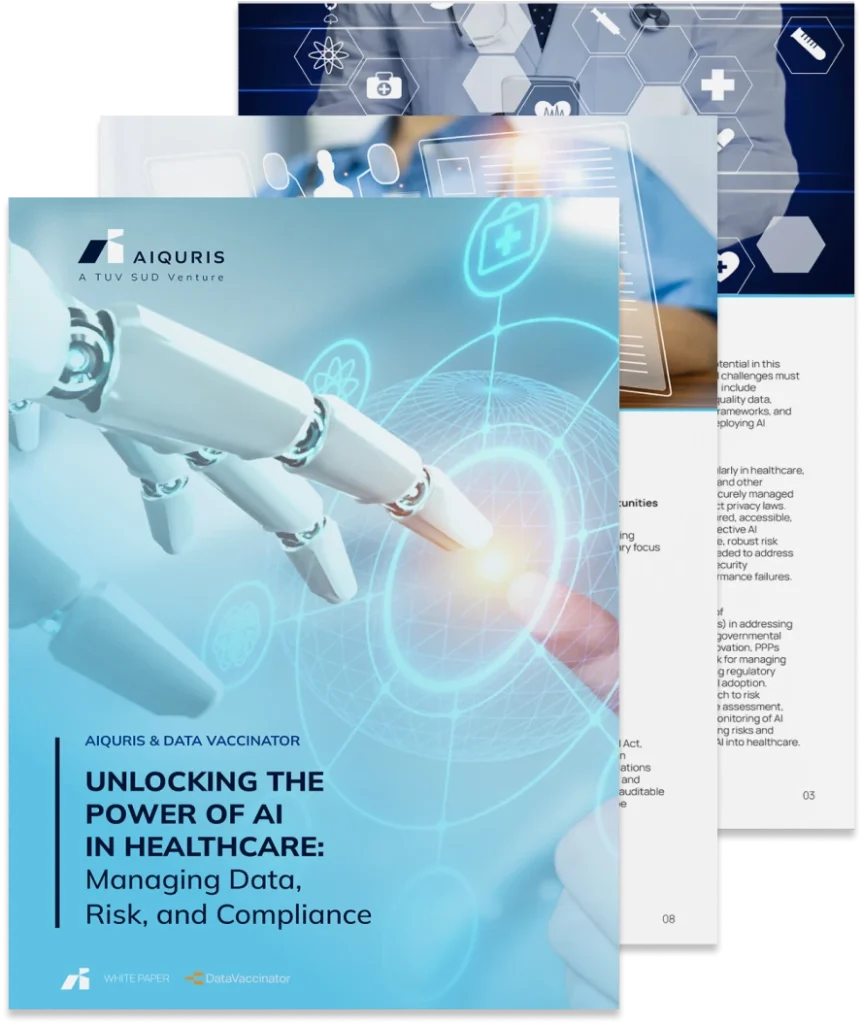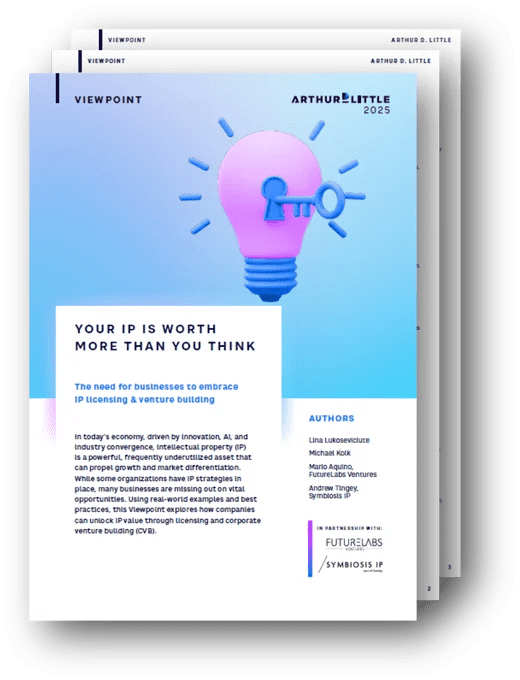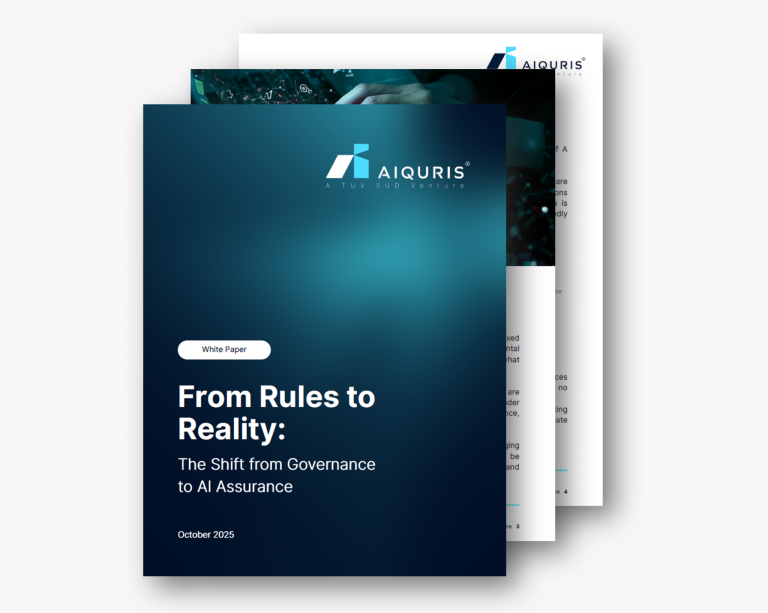Artificial Intelligence (AI) is transforming healthcare, with breakthroughs such as IBM Watson diagnosing diseases more accurately than human doctors 1, advanced AI systems predicting patient deterioration 2 and identifying genetic markers for rare diseases. 3 These innovations are revolutionising clinical decision-making and enabling earlier interventions across a wide range of healthcare applications.
While the benefits of AI in healthcare include enhanced diagnostic accuracy, streamlined operations, and personalised patient care, it also introduces significant risks, such as data breaches, algorithmic bias, and regulatory compliance challenges. To address these effectively, organisations need a holistic strategy encompassing governance, robust technical development, operational workflows, risk management, and a culture of accountability. Leveraging automated tools can also mitigate risks, ensuring that AI systems are safe, fair, and beneficial.
The Promise of AI in Healthcare
AI offers transformative potential in healthcare through diverse applications:
- Enhanced Diagnostic Accuracy: AI algorithms analyse medical images and data more effectively than traditional methods, enabling earlier detection of diseases like cancer. Studies show AI improves diagnostic accuracy and leads to timely interventions and better patient outcomes 4.
- Operational Efficiency: Automating administrative tasks such as billing and patient scheduling allows providers to focus on patient care. Cost savings of up to $150 billion annually are estimated due to increased efficiency 5.
- Personalised Treatment Plans: Leveraging large datasets helps clinicians develop tailored treatment strategies based on individual patient profiles 6.
Challenges and Risks Associated with AI Integration
Despite its potential, integrating AI into healthcare poses several challenges:
- Data Privacy Concerns: Handling sensitive health data raises privacy issues. Over 60% of patients worry about their data usage 7, with notable breaches affecting major hospital systems.
- Bias and Inequality: AI systems can perpetuate biases in training data, resulting in unequal outcomes. For instance, facial recognition AI has struggled to accurately identify individuals with darker skin tones 8.
- Regulatory Compliance: Complex regulations, such as the EU AI Act, classify medical applications as high-risk, imposing stringent compliance requirements with severe penalties for violations 9.
- Cultural and Organisational Barriers: Resistance from clinicians and lack of patient trust can hinder adoption. Clinicians may question the reliability of AI tools 10, and patients often express concerns about transparency 11.
- Complex AI Risk Management: Managing risks becomes resource-intensive as AI systems scale. Manual approaches lack adaptability for dynamic risk environments 12.
Mitigating AI Risks in Healthcare
To manage risks and ensure smooth integration, organisations must adopt a multifaceted approach, addressing governance, technical issues, and operational challenges. Key steps include:
- Risk Profiling of AI Use Cases: Assess the context, such as intended use, jurisdictional requirements, and data dependencies of AI applications to identify potential risks. Ensure the organisation is mature enough to adopt the AI application.
- Define Actionable Risk Controls: Create clear, implementable controls based on risks and compliance needs, including testing and auditing AI life cycles.
- Qualify AI Systems: Thoroughly evaluate systems against regulatory, operational, and ethical standards to validate their reliability, safety, and compliance.
Key Focus Areas
- Data Security: AI introduces new security risks, such as model leakage and adversarial AI attacks, which endanger sensitive patient data. Healthcare organisations need advanced cybersecurity measures tailored to AI.
- Algorithmic Bias: Biased training data can lead to discriminatory outcomes. Documenting bias-reduction strategies is critical for providers and users.
- Explainability: High-risk AI systems require explainability to meet regulations and build trust. Employing Explainable AI (XAI) ensures decision-making transparency for clinicians and patients.
- Regulatory Compliance: AI regulations are constantly evolving. For instance, the EU recently updated its AI Act with new rules for generative AI. Compliance teams must adapt, ensuring their systems align with these shifting legal requirements.
Leveraging Scalable Solutions
Managing AI risks manually is impractical for organisations with complex systems. Scalable solutions, such as automated tools for quality assurance and compliance monitoring, streamline workflows and provide continuous oversight. These tools enhance efficiency and mitigate risks proactively, ensuring AI systems remain trustworthy.
Conclusion
The impact of artificial intelligence in healthcare is undeniable, offering remarkable opportunities to enhance diagnostic accuracy, operational efficiency, and personalised care. However, these advancements come with substantial risks, including data privacy issues, algorithmic bias, and navigating evolving legal frameworks. To unlock AI’s potential, healthcare organisations must adopt comprehensive strategies encompassing governance, technical rigour, and proactive risk management. Manual approaches are no longer sufficient. Automated solutions integrating AI quality and risk management tools are essential for maintaining compliance and safeguarding patient trust.
By adopting responsible AI practices, healthcare organisations can integrate AI technologies while maintaining patient trust, regulatory compliance, and equitable outcomes.

Are you prepared to unlock the full potential of AI in healthcare?
Download our free white paper to explore strategies for addressing critical issues like data quality, regulatory adherence, and risk management.



